Top 15 USA Winter Olympic Moments

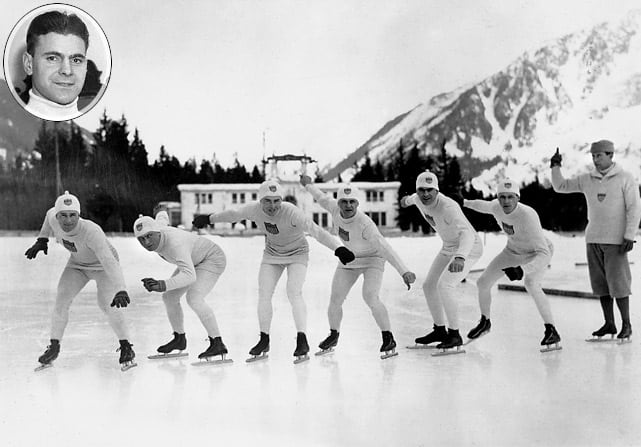
Fun fact to know and tell: The first gold medal in Winter Olympics history was won by an American. Speed skater Jewtraw took the 500-meter event on January 26, 1924 with a time of 44.0 seconds. Alas, it was the only U.S. gold at those Games. Jewtraw also finished 13th in the 5000m and eighth in the 1500m.
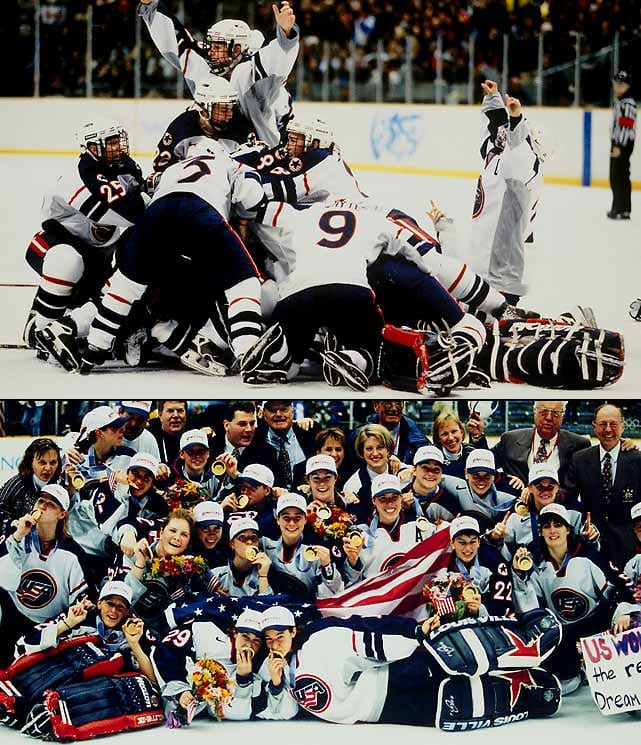
The U.S. men's team disgraced itself by busting up a dorm in the Olympic Village after failing to medal, but the women's squad delivered some honor and redemption by winning America's first gold in hockey since the 1980 Miracle On Ice. Led by forward Cammi Granato, defender Angela Ruggiero, and goaltender Sarah Tueting, the U.S. rolled to gold while outscoring foes by a combined 36-8 and beating archrival Canada twice in four days as women's hockey made its Olympic debut.
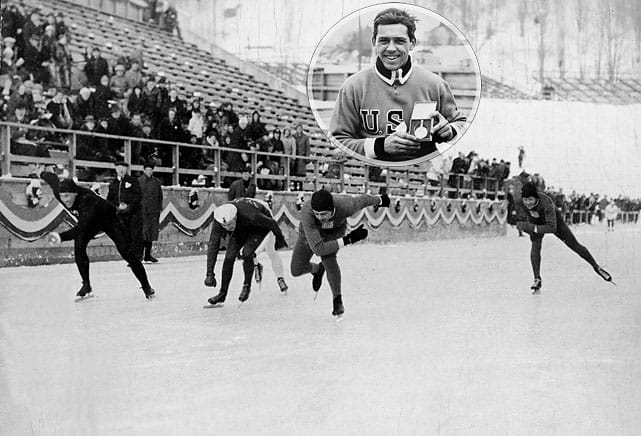
A Lake Placid native and patriarch of a family that produced three generations of Olympians, Shea became the first athlete to win two gold medals in one Winter Games (500m and 1,500m speed skating). His win in the 1,500 was controversial in that European and Scandinavian countries objected to the North American "pack style" format used in these Games, and the second 1,500 heat was stopped by officials who accused the skaters of loafing and ordered a restart. Shea and teammate Irving Jaffee ended up winning all four speed skating golds.
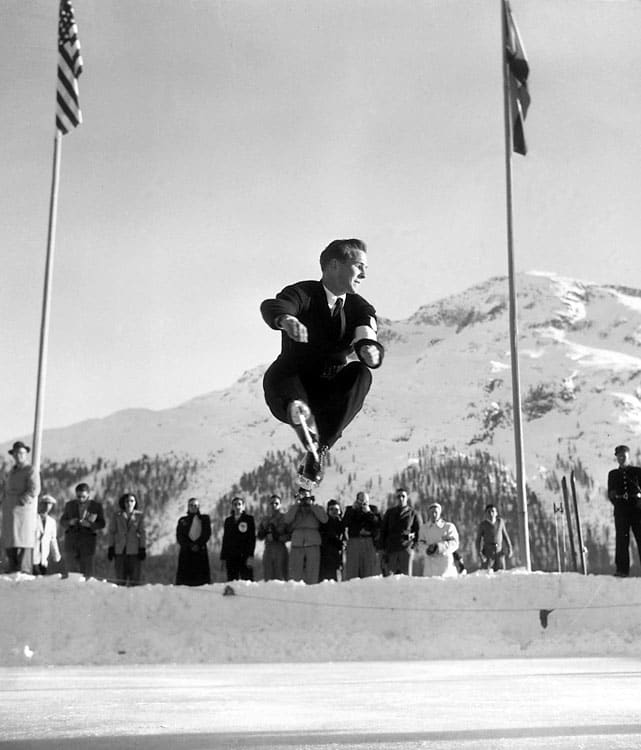
Button revolutionized his sport while becoming the first American figure skater to win gold. Dazzling fans and judges, he fearlessly introduced the double axel to Olympic competition only two days after successfully completing one for the first time. Button later won a second gold in 1952 at the Oslo Games, this time introducing the triple loop. Out of the 18 total judges at those two Games, only one did not award him a first-place vote.
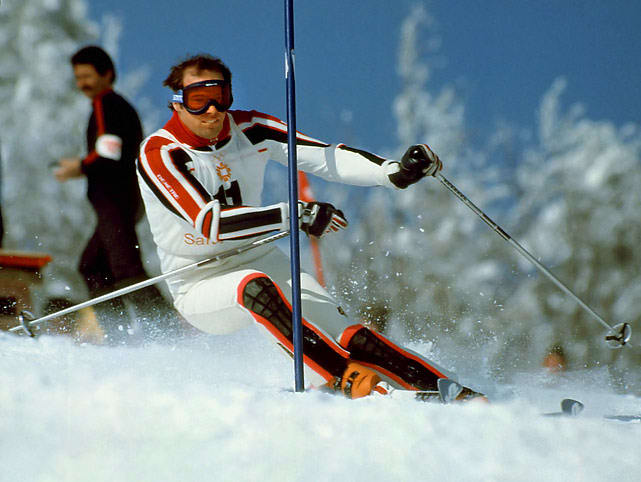
Fully recovered from a career-threatening fall at the 1979 World Championships, Mahre -- the 1980 Olympic slalom silver medalist and World Cup overall champ in 1981, '82 and '83 -- took advantage of a gaffe by his twin brother Steve to win the slalom gold in Sarajevo. (Steve ended up with the silver.) Brash American long-shot Bill Johnson won gold in the downhill after telling the world that was exactly what he was going to do.
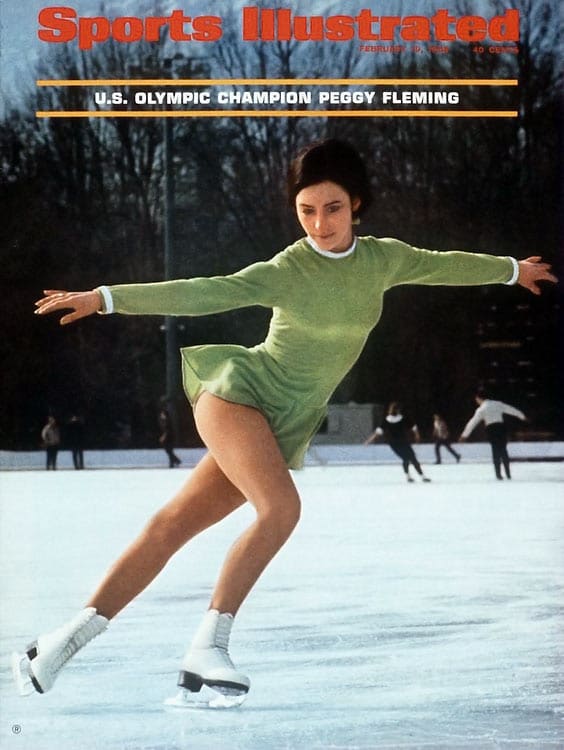
Skating to Tchaikovsky, the graceful 19-year-old enchanted the crowd and a worldwide TV audience viewing the Games in color for the first time. Handily averting America's first gold-medal shutout in Winter Olympics history, the five-time U.S. and two-time world champion won by 88.2 points and became an enduring star who had a huge impact on the popularity of her sport.
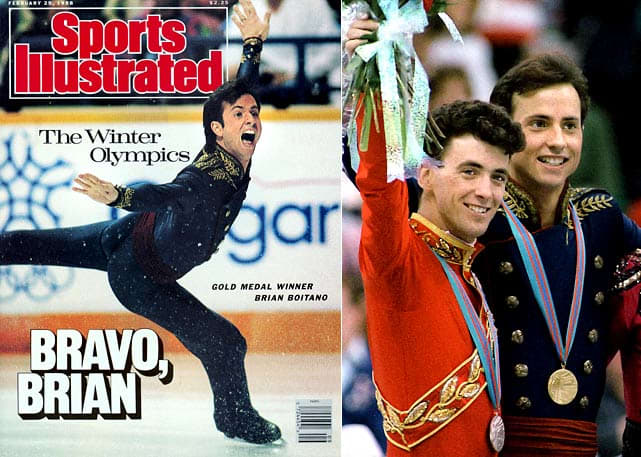
The Battle of the Brians -- Boitano vs. friend and rival Brian Orser of Canada -- produced the greatest figure skating exhibition in Olympic history. With Orser leading after the short program, Boitano skated the performance of his life, becoming the first American skater to land a triple axel. Orser was equally impressive, but his two-footed landing off a triple flip jump and downgrade from a triple axel to a double gave the judges reason to narrowly award the gold to Boitano on technical merit.
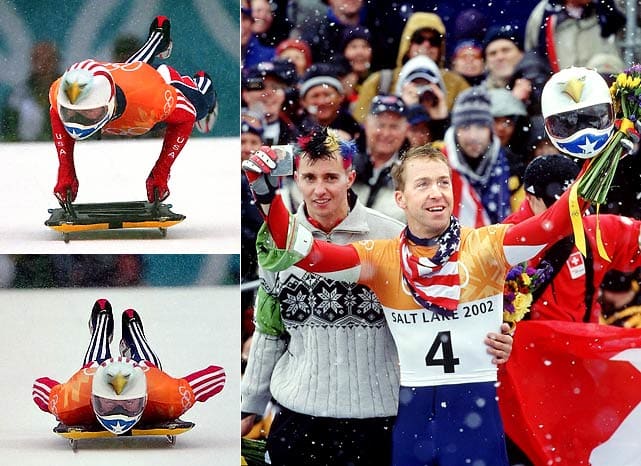
The unprecedented third member of an American family to appear in a Winter Olympics (his father, Jim Sr., competed in Nordic Combined at Innsbruck in 1964), Jimmy Shea became the first U.S. athlete to win gold in men's skeleton. His victory was especially poignant when he held aloft a photo of his grandfather, Jack, the 1932 speed skating gold medalist who had died two weeks earlier.
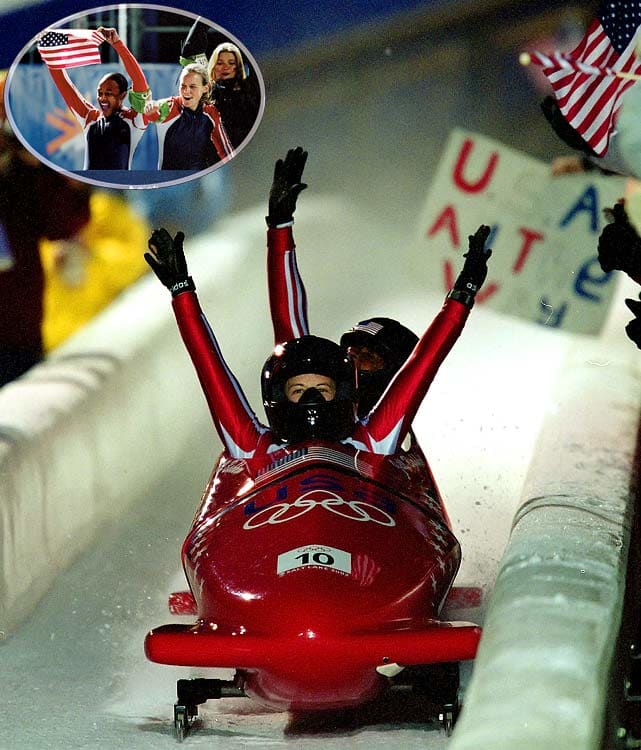
America's 46 years without an Olympic bobsledding medal ended when this unlikely pair roared out of obscurity to win the inaugural women's event. Bakken was still in the National Guard. Flowers was a seven-time track All-American who had answered a want-ad from the U.S. Bobsled Federation. Their victory made Flowers the first African-American to win Winter Olympic gold, and the U.S. Team bestowed upon her the honor of flag-bearer at the Closing Ceremony.
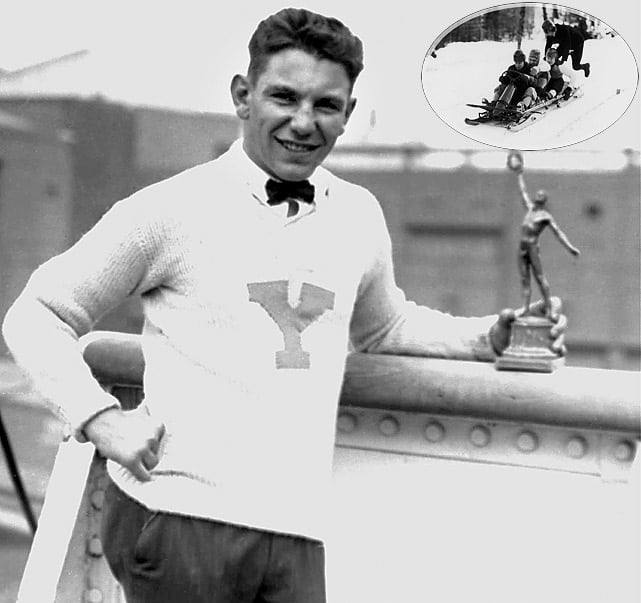
Weather wreaked havoc on bobsledding, with a blizzard and subsequent thaw causing crashes, turning the course to soup, and postponing the four-man event until two days after the Games closed. But the U.S. prevailed, making Eddie Eagan the only athlete in Olympic history to win gold at both a Summer and Winter Games. Eagan, the 1920 light-heavyweight boxing gold medalist, had taken up bobsledding only three weeks before his historic ride in the four-man.
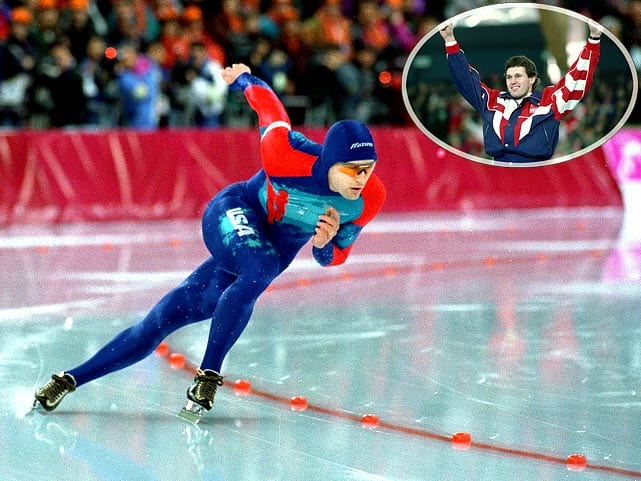
The speed skater's long-sought gold was one of the most emotional moments in Olympic history. After failing to medal in his Olympic debut in 1984, Jansen was favored to win gold in Calgary in 1988, but his sister's death left him shaken, and he fell in his two events (500m and 1000m). Four years later at Albertville, he finished fourth and 26th, respectively. Lillehammer was his final try. A slip in the 500 left him eighth, but his agonizing ordeal ended in the 1,000. Jansen skated a touching victory lap with his daughter Jane, named after his late sister, to whom he dedicated his medal.
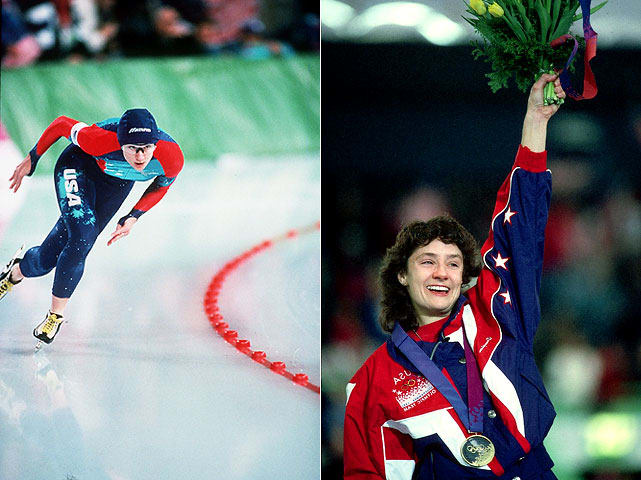
The popular, effervescent speed skater closed out her illustrious career by becoming the most decorated American athlete in Winter Olympics history (five golds, one bronze). In her fourth Olympic appearance, Blair won the women's 500m for an unprecedented third time and tacked on gold in 1,000 as a large group of her Blair Bunch followers cheered her on after flying in from the U.S.
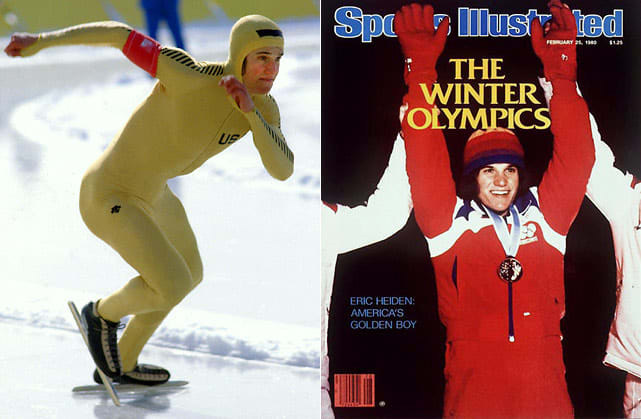
In one of the most dominant performances in Olympic history, Heiden, 21, became the first athlete to win five individual gold medals in a single Games, Summer or Winter. He set Olympic records in the 500-meters, 1,000, 1,500 and 5,000, and then exceeded the world record in 10,000 by more than six seconds despite a late night celebrating the U.S.hockey team's Miracle on Ice.
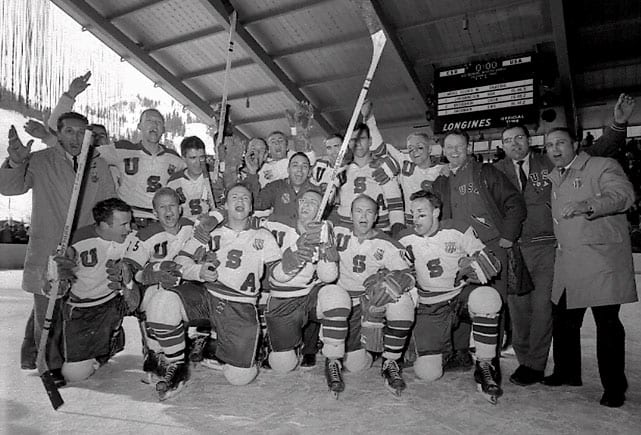
Often called "the forgotten miracle," the U.S. upset vastly superior Canadian and Soviet teams. Their 3-2 win over the Soviets came with a Cold War backdrop, and their 9-4 rout of Czechoslovakia secured the gold. The U.S. got terrific goaltending from Jack McCartan. In what would be a link to a future Lake Placid miracle: Bill and Roger Christian, the father and uncle respectively of 1980 team defenseman Dave Christian, produced the tying and winning goals against the Soviets. The last player cut from the team before the Games: Herb Brooks, who would coach the 1980 squad.
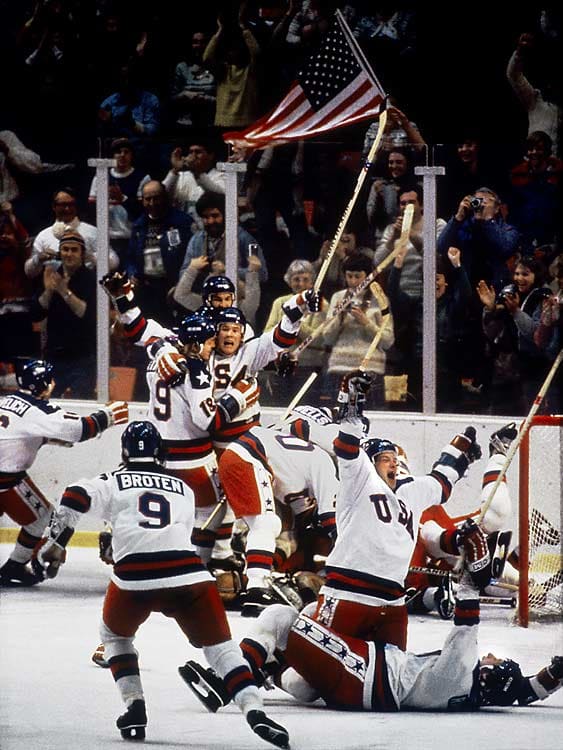
In arguably the greatest moment in U.S. sports history, a gritty, talented team coached by Herb Brooks and made up mostly of college players upset a Soviet powerhouse that had dominated world hockey and whipped them 10-3 in an exhibition a week before the Games. But the clutch goaltending of Jim Craig and a monumental go-ahead goal by Mike Eruzione enabled the U.S. to win 4-3, inspiring broadcaster Al Michaels to utter his famous "Do you believe in miracles?" The next day, the U.S. rallied to beat Finland for the gold.
